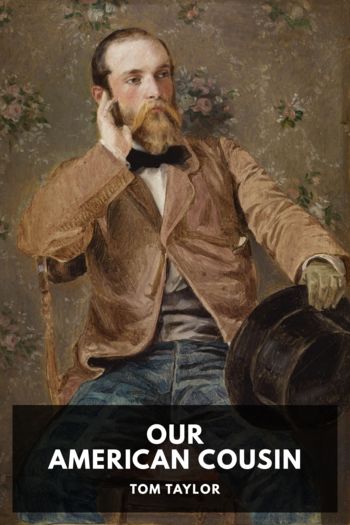Daughters of the Summer Storm, Frances Statham [classic reads txt] 📗

- Author: Frances Statham
Book online «Daughters of the Summer Storm, Frances Statham [classic reads txt] 📗». Author Frances Statham
"Vasco—"
The young man interrupted his mother. "Better for the girl to know now, so that she can back out if she does not want a cripple for a husband."
Pity rushed into Maranta's heart at the sight of the handsome man, so young and so tragic. And the pity was mixed with relief. The marriage would be in name only, and for the first time since her departure from Charleston, Maranta was at peace.
"I will not back out, senhor. I have already given my promise."
A sudden noise from the shadows at the far end of the sala caused Maranta to look in that direction. And she stared into the cynical eyes of Ruis da Monteiro as he walked forward into the light.
Patû picked up Vasco and carried him into the dining room, where Dona Isobel joined them for dinner. And Maranta, forgetting her shyness, talked with Vasco to show him that she did not care that he was not so healthy as his brother Ruis, the arrogant fazendeiro.
There was only one thing that disturbed Maranta. Ruis's wife, Innocencia, had not made an appearance; and yet, no one bothered to explain her absence.
When dinner was over and Maranta was again in her room preparing for bed, she questioned Sassia about Innocencia.
"Dom Ruis's wife was not at dinner tonight, Sassia. Is she away?"
Sassia stopped brushing Maranta's hair for a second. "She doesn't eat with the rest of the family very often. The young senhora is delicate and has headaches much of the time."
"Is she very. . . beautiful?"
"Oh, yes. Pale eyes like a summer sky—and hair like moonbeams."
Maranta did not know why that knowledge pained her—that Innocencia was beautiful. Of course she would be—chosen by someone like Ruis da Monteiro.
"Does she. . . do they have children?"
"They were expecting one at one time, according to the Indian girl, Floresta. But something happened, and Dona Innocencia lost the baby. Floresta says she doesn't think the senhora can ever have another child."
"How sad."
"But Dom Vasco—" Sassia stopped abruptly and began to brush Maranta's hair more vigorously.
"What were you going to say about Dom Vasco?"
Sassia, looking confused, acted as if she could not remember. But Maranta had a feeling that the black girl had merely changed her mind about confiding in her.
"There are so many people here, Sassia, and so many names. I'm not sure I'll ever be able to learn or remember them all."
Sassia nodded. "Anyone who is born in the fazenda can remain for life. That is the custom, yayá. But it makes it awfully crowded sometimes," she said. "Especially when the fazendeiro has a black wife as well as a white wife, with two sets of children."
"What? You mean Dom Ruis. . ."
Sassia laughed and shook her head at Maranta's incredulous expression. "Not Dom Ruis. But some of the others on the neighboring fazendas. Is that not true in your own country where there are slaves?"
"No," Marenta refuted. "A man can't have two wives in my country. It's true that a man may have a. . . a mistress, but if she has children, they are not. . . acknowledged."
Maranta blushed, but Sassia did not notice. "Then Brazil is better than your country, senhorita—for here, all the children are acknowledged and share in their father's estate, even when he is not married to their mother."
"It is a. . . a disgrace to be illegitimate. I feel sorry for any child who is born of such. . . such sinful parents."
When Sassia was gone, Maranta knelt by her bedside for a long time before she finally laid her head on her pillow to go to sleep.
Even the morals were different in this strange land. To think that a man would have the effrontery to keep his mistress in the same house as his wife. But at least with Vasco da Monteiro as her husband, Maranta would never be subjected to that disgrace.
14
Late the next afternoon, Maranta stood in the middle of her bedroom, while Sassia placed the white lace mantilla over her dark hair.
Maranta wore her birthday dress—that voluptuous-skirted white moiré silk that Mrs. Windom had made for her eighteenth birthday. Little did Maranta and Marigold know at the time that those dresses would also serve as their wedding gowns.
The mantilla had been delivered to her room with the message that the priest had arrived and was waiting in the family chapel to perform the ceremony that would link Maranta Tabor forever with the Monteiro family.
She thought of Marigold in an identical dress, saying her unwilling vows to Crane Caldwell. And now, it was her turn. But somehow, things had not worked out so badly for her, as they had for Marigold. At least, Maranta would be spared the indignity of sharing her bed with her husband.
"And what jewelry will you wear, yayá?" Sassia asked, adjusting the mantilla in graceful folds over Maranta's creamy white shoulders.
"The locket, I think," Maranta said.
Sassia walked to the open jewelry case. "The cross is beautiful. . ."
"I will not wear the cross, Sassia. Please put it back."
"Yes, yayá."
Maranta waited for Sassia to fasten the golden chain around her neck. She did not see the black girl as she pulled the figa, the tiny amulet resembling a closed fist, from her apron pocket to stick it to the underside of the locket before placing it about her neck.
When the knock sounded on the door, Sassia went to answer it.
"Is the senhorita ready? I have come to escort her to the chapel."
"Sim, Don Ruis. She is ready."
The man surveyed Maranta from head to toe, much as he had done with his bold eyes on the ship, the Beaufort. Once again, Maranta felt the staining of her cheeks and the swift flutter of her heart.
Ruis did not speak but held out his arm for her hand. Maranta walked with him from the bedroom. But instead of going down the stairs, Ruis led her through the second-story parlors and the library to the gallery





Comments (0)